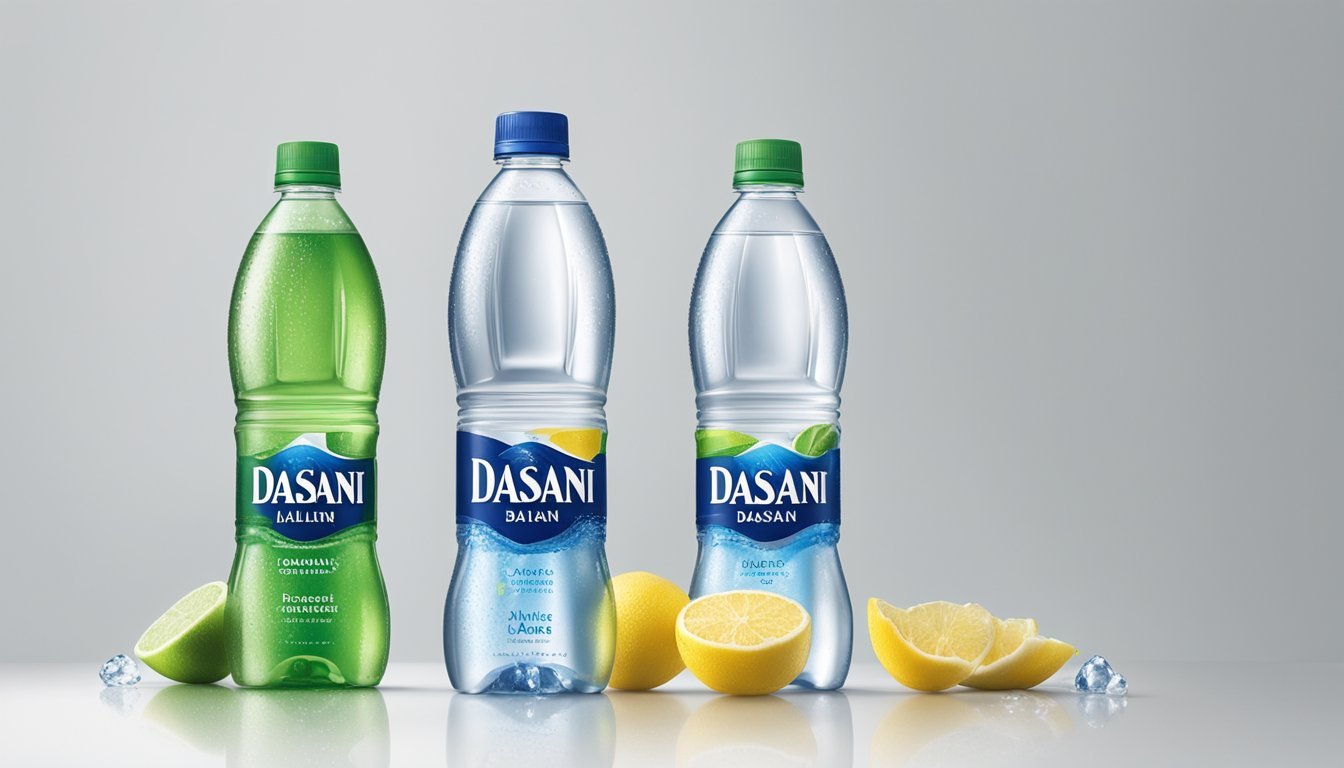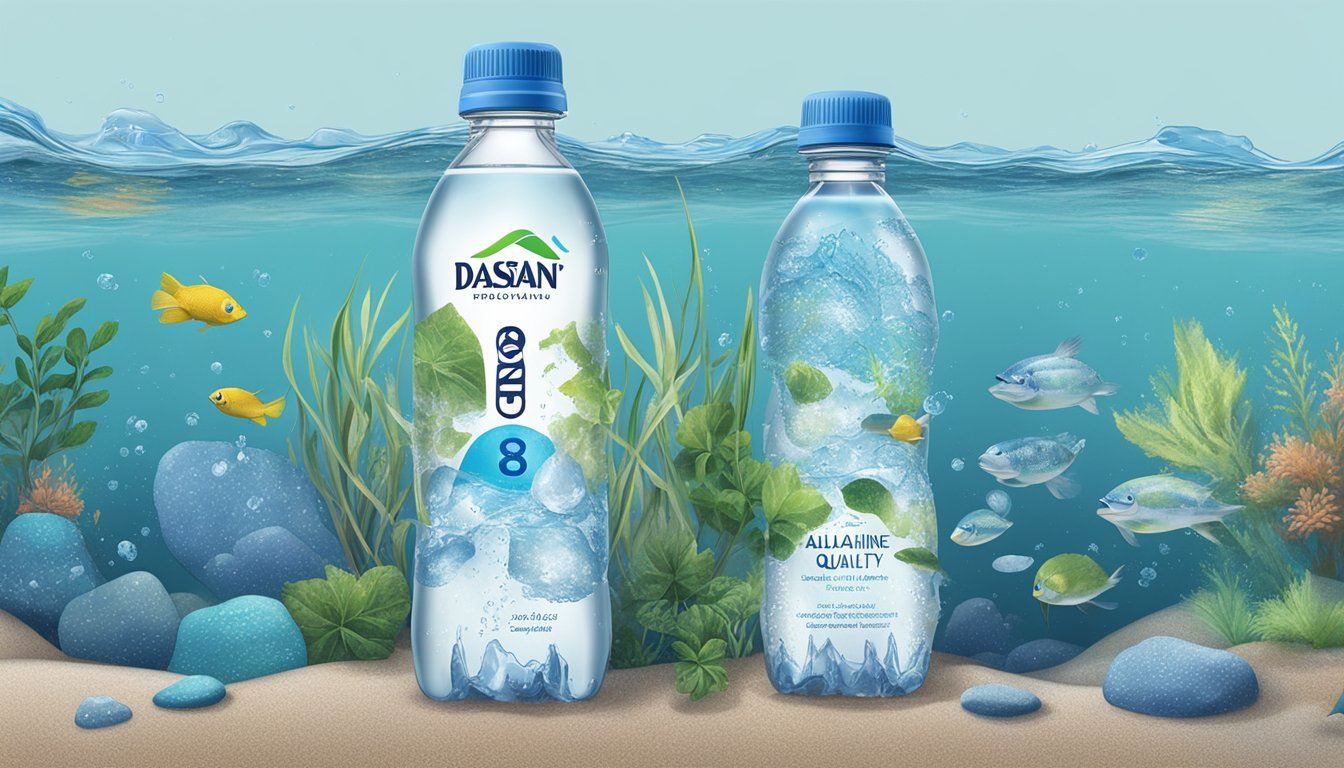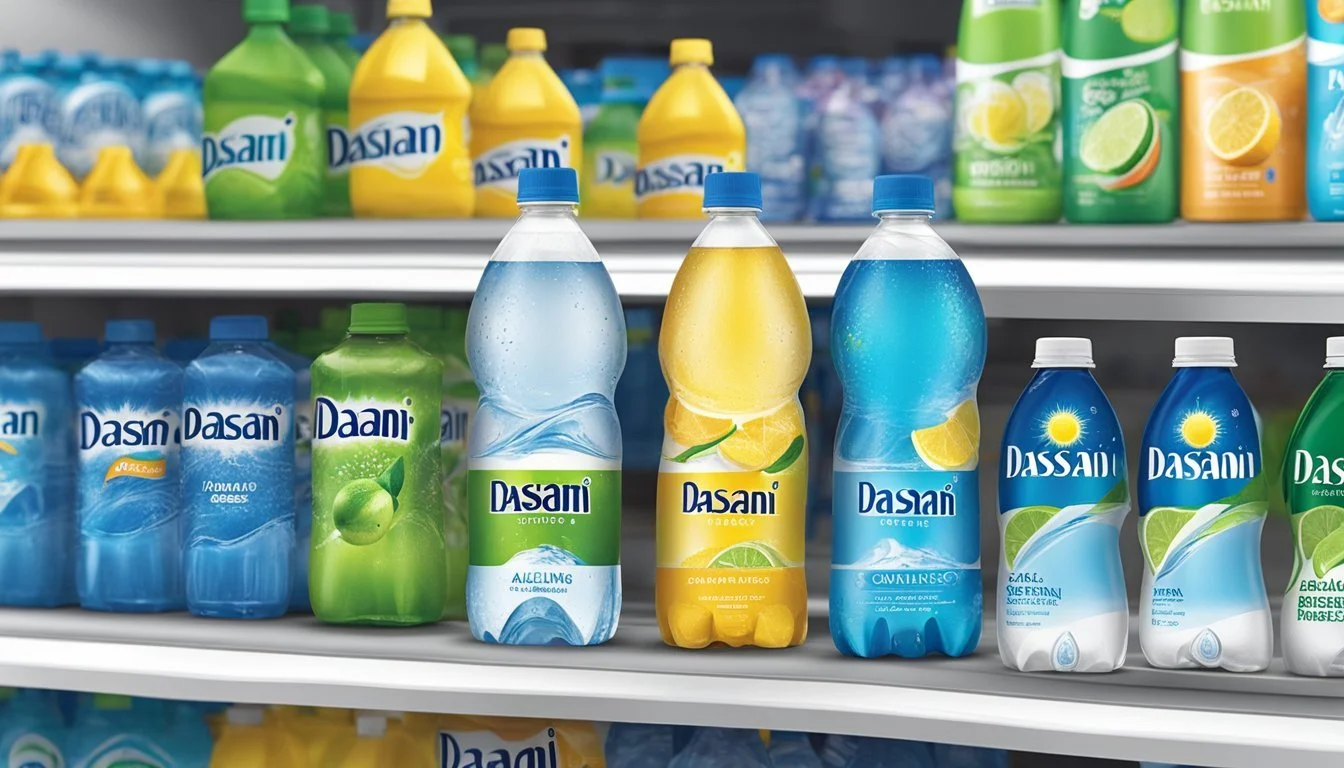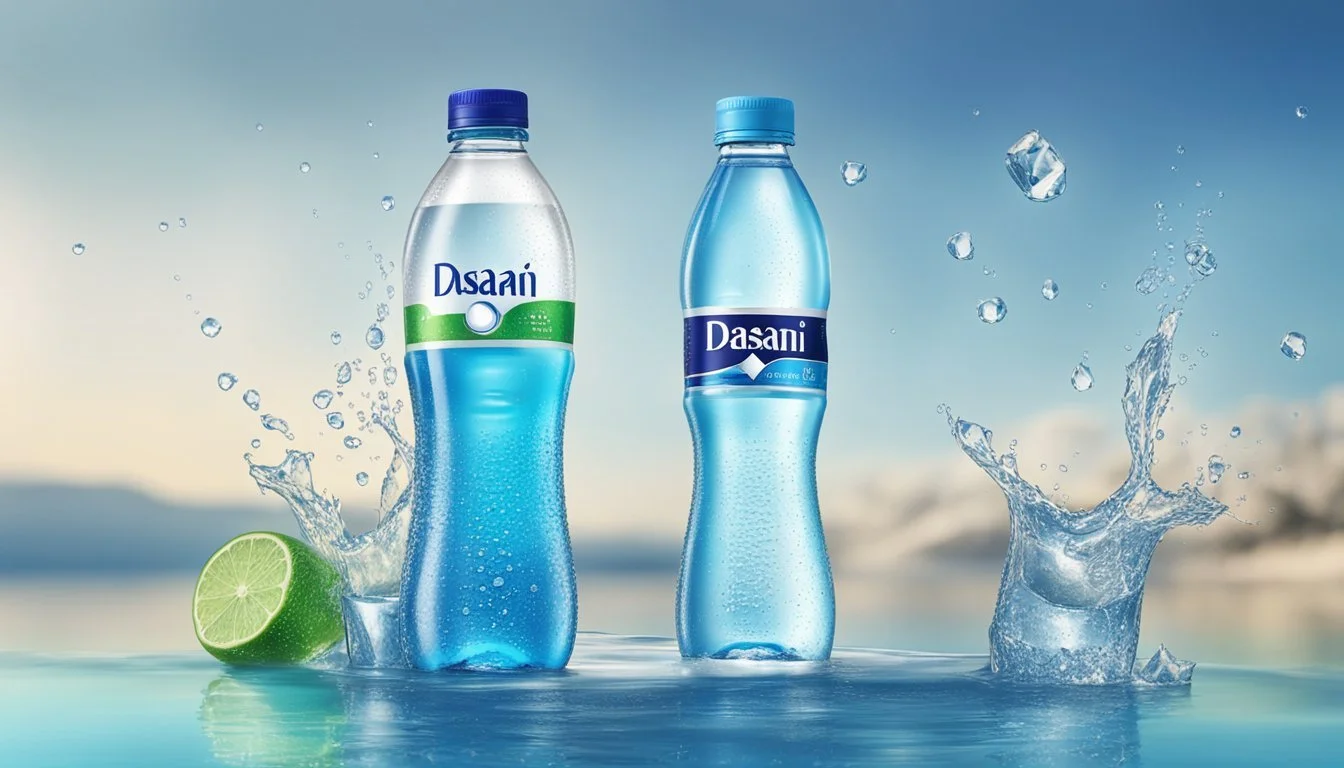Alkaline88 vs. Dasani
A Comprehensive Comparison of Bottled Water Quality
Choosing the right bottled water can be as important as picking the right meal for your health. If you're deciding between Alkaline88 and Dasani, it’s crucial to consider factors like taste, nutritional benefits, and how each brand balances your body’s needs. Alkaline88 stands out for its added 84 minerals, which help balance the body's pH levels more effectively.
Dasani, on the other hand, is known for its purified and enhanced water with a blend of minerals that promises a fresh, clean taste. Packaged in a 100% recyclable bottle, it appeals to eco-conscious consumers. While both have their merits, the choice often boils down to personal preference and specific health goals.
Understanding the differences in composition and taste can influence which brand is better suited to your lifestyle. Alkaline88 may be the better option if you're seeking the health benefits of alkaline water and additional minerals. Meanwhile, Dasani offers a reliable, purified bottle of water that excels in convenience and sustainability.
Background on Bottled Water Brands
Alkaline88 and Dasani have distinct profiles that cater to different consumer preferences. They emphasize various attributes like pH levels, purification processes, and branding efforts to stand out in a competitive market.
Profile of Alkaline88
Alkaline88 is known for its high pH level, which generally ranges around 8.8. This higher pH level is achieved through a proprietary process called "Electrolysis" that enhances the water with minerals and electrolytes. The primary goal is to offer a balanced and refreshing hydration experience.
The brand emphasizes its use of Himalayan Pink Salt to naturally increase its mineral content. Alkaline88 markets itself as a premium option, particularly popular among health-conscious consumers who seek benefits beyond basic thirst-quenching.
Profile of Dasani
Dasani is a product of Coca-Cola and has been on the market since 1999. It is purified through a process called hydro-7, which involves reverse osmosis to remove impurities. A distinguishing feature is the addition of trace amounts of minerals, including magnesium sulfate, potassium chloride, and salt, intended to produce a crisp taste.
Despite its mainstream acceptance, Dasani has faced criticism for being essentially purified tap water. Nevertheless, it remains a widely available and recognized brand. Its affordability and extensive distribution network contribute to its popularity among a broad demographic.
Water Quality and Sources
Understanding the sources and purification processes of bottled water brands like Alkaline88 and Dasani can provide insight into their water quality.
Source of Water
Alkaline88 sources its water from natural springs. These springs often provide naturally alkaline water rich in minerals. This spring water is generally harvested from underground springs and mountain sources, making it naturally pure.
Dasani sources its water mainly from local municipal water supplies. This groundwater is not spring water, but instead comes from the same sources as tap water. Despite this, it undergoes significant filtration and purification processes to ensure quality.
Filtration and Purification Processes
Alkaline88 utilizes a proprietary purification process known as "Hydro-7." This process uses advanced filtration techniques like reverse osmosis and the addition of minerals to achieve a higher pH. Additionally, Alkaline88 often includes trace minerals that naturally increase its alkalinity and improve taste and hydration.
Dasani employs a multi-step purification process. The water undergoes reverse osmosis to remove impurities, followed by the addition of minerals such as magnesium sulfate, potassium chloride, and sodium for taste. Further purification steps include ultraviolet light and ozone disinfection, ensuring the water is free from contaminants.
Health and Nutritional Aspects
This section delves into the health and nutritional aspects of Alkaline88 and Dasani, covering factors such as pH levels, mineral contents, and the presence of any additives or contaminants that may influence health.
pH Levels and Alkalinity
Alkaline88 is known for its higher pH levels, typically around 8.8, which places it in the alkaline range. This alkalinity is often believed to neutralize acidity in the body, potentially offering health benefits like improved hydration and better pH balance.
Dasani, on the other hand, has a pH level closer to neutral, typically ranging from 5.6 to 7. Despite this, Dasani is still considered acidic compared to Alkaline88.
Alkaline water proponents argue that higher pH levels in water like Alkaline88 can help with reducing acid reflux and improving overall hydration.
Mineral and Electrolyte Content
Alkaline88 is enriched with trace minerals and electrolytes, including magnesium sulfate and potassium, which are essential for maintaining proper hydration and muscle function. These added minerals can enhance the taste and provide additional health benefits.
Dasani contains added minerals such as magnesium sulfate, potassium chloride, and salt. These minerals are included to improve the taste and can contribute to daily mineral intake.
Although both waters include beneficial minerals, Alkaline88 may provide a richer blend due to its focus on the health advantages of alkaline properties.
Additives and Contaminants
Alkaline88 is marketed as free from additives and contaminants such as chlorine, bromate, and pfas chemicals, making it a cleaner choice for health-conscious consumers. Its sourcing from the French Alps is often regarded as a mark of purity.
Dasani is purified through a rigorous reverse osmosis process that removes impurities. However, it includes additives like sodium. While the minerals added back into Dasani are considered safe by regulatory standards, some consumers may be wary of certain components.
Both brands aim to provide purified and safe drinking water, but Alkaline88’s emphasis on minimal additives might appeal to those looking for a purer water source.
Taste Profile and Consumer Preferences
This section examines the taste profile and consumer preferences for Alkaline88 and Dasani, focusing on the elements that affect taste and the results of comparative taste tests.
Factors Influencing Taste
Taste in bottled water is influenced by various factors, including the mineral content and any added minerals. Alkaline88 advertises an 8.8 pH level and is enhanced with Himalayan minerals, which may contribute to a slightly more alkaline taste profile that some consumers find appealing.
Dasani, in contrast, uses a reverse osmosis filtration process and adds a blend of mineral salts such as magnesium sulfate and potassium chloride to enhance flavor. These minerals introduce a distinct mineral taste that can be noticeable and preferred by those who like a more robust flavor in their water.
Taste Test Comparisons
Taste tests often reveal subjective preferences among consumers. In comparisons, Alkaline88 tends to be favored for its smooth and clean taste, which many attribute to its higher pH and lack of pronounced mineral flavor. Its subtle taste makes it a popular choice for those who prefer a more neutral water profile.
Dasani, meanwhile, is frequently noted for its distinct mineral flavor due to the added electrolytes. Some consumers appreciate this enhanced taste, while others might find it too strong compared to more neutral water brands. Taste tests conducted among various groups show a divide, with preferences leaning towards individual taste inclinations rather than a clear consensus on superiority.
Environmental Considerations
When comparing Alkaline88 and Dasani, environmental factors play a crucial role in determining their overall impact. These considerations include the composition and recyclability of the bottles, as well as their effect on ecosystems.
Bottle Composition and Recycling
Alkaline88 uses BPA-free plastic bottles, emphasizing the absence of bisphenol A, a harmful chemical. Dasani bottles are made from 100% recyclable PET plastic. Both brands highlight their efforts to produce reusable and recyclable packaging.
Recycling programs vary, but Dasani's bottle composition often encourages consumers to recycle due to clearer labeling and Coca-Cola’s strong recycling initiatives.
On the other hand, Alkaline88 promotes refillable and larger-sized bottles to reduce single-use plastic waste, addressing concerns around plastic pollution and the environment.
Impact on Ecosystems
Plastic waste poses a significant threat to aquatic ecosystems. Alkaline88 seeks to mitigate this by offering larger-sized containers and promoting recycling. Their marketing also frequently includes the environmental benefits of reusing bottles.
Dasani, sourced from local municipal supplies, ensures a minimal carbon footprint relative to some competitors who source from distant, sometimes vulnerable natural springs. Both companies focus on water conservation and reducing operational impacts to support public health and sustainability in their production processes.
Each brand's efforts to reduce plastic pollution and promote sustainability reflect their broader commitment to environmental stewardship. Thus, understanding their practices can help consumers make more informed choices.
Packaging, Pricing, and Availability
Alkaline88 and Dasani present different approaches in packaging, pricing, and distribution channels. These elements are crucial for consumers when choosing between these two water brands.
Design and Packaging Differences
Alkaline88 uses a sleek, minimalist design with emphasis on its alkaline properties. Packaging often features clear bottles showcasing the water’s purity, with blue and white labels emphasizing the brand’s premium feel.
Dasani, on the other hand, opts for a more commercial look. The bottles are made from PET plastic, containing a mix of green and blue hues, symbolizing refreshment. Its packaging often highlights environmental sustainability, mentioning the use of PlantBottle® technology.
Both brands offer various sizes, but Alkaline88 frequently uses larger bottles aimed at health-conscious consumers. Dasani provides more convenient, smaller options for on-the-go hydration.
Price Comparison
When comparing prices, Alkaline88 tends to be on the higher end of the spectrum. A pack of 12 bottles can cost around $39.99, equating to over $3 per bottle. This higher price reflects its premium branding and alkaline water properties.
Dasani is more budget-friendly, usually priced between $1 to $2 per bottle. This affordability makes it accessible for a wider audience. The cost-effectiveness is one of Dasani’s main selling points.
Availability in Different States
Alkaline88 is available online and in select retail stores. Its distribution is more limited, often found in specialty health food stores and upscale supermarkets. This restricted availability can be a barrier for some consumers.
Dasani enjoys broad distribution across the United States. It is commonly found in convenience stores, grocery chains, and vending machines nationwide. This widespread availability makes it a convenient option for many consumers regardless of their location.
Regulations and Safety Standards
Ensuring the safety and quality of bottled water such as Alkaline88 and Dasani involves adhering to strict regulations and standards. This involves compliance with FDA regulations and rigorous quality assurance practices.
FDA Regulations and Compliance
The Food and Drug Administration (FDA) classifies bottled water as a food product and imposes stringent guidelines to ensure its safety. Alkaline88 and Dasani must comply with these guidelines, which cover aspects such as contaminant levels, labeling, and manufacturing practices.
The FDA requires bottled water to meet standards established for microbiological, physical, chemical, and radiological quality. Regular testing is mandated to detect any potential contaminants and to confirm compliance with these standards.
Manufacturing facilities must adhere to Good Manufacturing Practices (GMPs) to minimize contamination risks. This includes proper handling, processing, and bottling conditions. Compliance with FDA regulations ensures that consumers receive safe and high-quality bottled water.
Public Safety and Quality Assurance
Public safety is paramount in the bottled water industry. Both Alkaline88 and Dasani implement robust quality assurance programs to maintain high standards. This involves continuous monitoring and testing at various stages of production.
Quality assurance protocols include testing for pH levels, mineral content, and potential contaminants. For instance, Dasani subjects its water to a purification process that includes reverse osmosis and the addition of minerals to enhance taste and quality.
Alkaline88 uses ionization and alkalization processes to achieve its distinctive alkaline pH. Both companies ensure their products are free from harmful substances and meet all safety standards before reaching consumers.
Their commitment to quality is also demonstrated through the use of safe and recyclable packaging materials, which further enhance public trust in their products.
Market Position and Brand Comparisons
Alkaline88 and Dasani both hold distinct positions in the bottled water market, each appealing to different consumer preferences and needs.
Comparative Analysis with Other Brands
Dasani, owned by Coca-Cola, is well-known for its purification process and added minerals, setting it apart from other brands like Aquafina and SmartWater. Alkaline88, on the other hand, markets itself on its high pH level and Himalayan pink salt added for taste.
Aquafina, owned by PepsiCo, focuses on its purity achieved through reverse osmosis. Fiji stands out with its natural artesian water source, providing a unique taste profile. Evian and Perrier cater to premium segments with their spring sources. Essentia and Icelandic Glacial target the alkaline water market similarly to Alkaline88, though with different sourcing. In contrast, Nestlé Pure Life aims at mass-market appeal, emphasizing affordability over premium features.
Consumer Reports and Brand Perception
Consumer perceptions vary based on brand positioning. Dasani often receives mixed reviews—praised for its clean taste but criticized for its slightly plastic aftertaste, which some consumers find off-putting. In comparison, Alkaline88 tends to receive positive feedback for its smooth taste and high pH level, appealing to those seeking alkaline water benefits.
Brands like Voss and SmartWater are frequently noted for their stylish packaging and crisp taste, enhancing their premium appeal. Poland Spring and Deer Park are favored for their natural spring water sources, promoting a more traditional choice.
In contrast, Nestlé Pure Life and Ice Mountain offer a reliable and affordable option, though sometimes critiqued for being too average in taste. Penta and Core Hydration further diversify the market by combining benefits of high pH and electrolyte enhancements. This varied landscape reflects diverse consumer expectations and brand loyalties, influencing their market success.
Final Thoughts
When choosing between Alkaline88 and Dasani, several key factors help determine which is better.
Alkaline88:
Known for its high pH level, which can range around 8.8.
Ingredients: Purified water enhanced with Himalayan pink salt.
Packaging: BPA-free bottles.
Dasani:
Features a neutral pH level, closer to 7.
Ingredients: Purified water with added minerals, including magnesium sulfate, potassium chloride, and salt.
Packaging: Bottles made from recycled materials.
Hydration Properties:
Alkaline88's higher pH level is often marketed as providing superior hydration.
Dasani, via its purification process, aims to offer a clean and crisp taste.
Consumers looking for a water brand that supports hydration preferences and health might consider these details. While Alkaline88 emphasizes its alkali nature, Dasani focuses on a blend of purified water with added minerals.
Both brands are popular choices, with distinct features tailored to different consumer preferences and needs.






